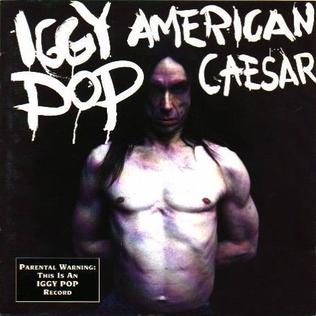This is a brief essay that Iggy Pop wrote for the journal Classics Ireland in 1995.
Caesar Lives by Iggy Pop
In 1982, horrified by the meanness, tedium and depravity of my existence as I toured the American South playing rock and roll music and going crazy in public, I purchased an abridged copy of The Decline and Fall of the Roman Empire (Dero Saunders, Penguin).
The grandeur of the subject appealed to me, as did the cameo illustration of Edward Gibbon, the author, on the front cover. He looked like a heavy dude.
Being in a political business, I had long made a habit of reading biographies of wilful characters — Hitler, Churchill, MacArthur, Brando — with large profiles, and I also enjoyed books on war and political intrigue, as I could relate the action to my own situation in the music business, which is not about music at all, but is a kind of religion-rental.
I would read with pleasure around 4 am, with my drugs and whisky in cheap motels, savouring the clash of beliefs, personalities and values, played out on antiquity’s stage by crowds of the vulgar, led by huge archetypal characters.
And that was the end of that. Or so I thought. Eleven years later I stood in a dilapidated but elegant room in a rotting mansion in New Orleans, and listened as a piece of music strange to my ears pulled me back to ancient Rome and called forth those ghosts to merge in hilarious, bilious pretence with the Schwartzkopfs, Schwartzeneggers and Sheratons of modern American money and muscle myth. Out of me poured information I had no idea I ever knew, let alone retained, in an extemporaneous soliloquy I called ‘Caesar’.
When I listened back, it made me laugh my ass off because it was so true. America is Rome. Of course, why shouldn’t it be? All of Western life and institutions today are traceable to the Romans and their world. We are all Roman children for better or worse. The best part of this experience came after the fact — my wife gave me a beautiful edition in three volumes of the magnificent original unabridged Decline and Fall, and since then the pleasure and profit have been all mine as I enjoy the wonderful language, organization and scope of this masterwork.
Here are just some of the ways I benefit:
1. I feel a great comfort and relief knowing that there were others who lived and died and thought and fought so long ago; I feel less tyrannized by the present day.
2. I learn much about the way our society really works, because the system-origins — military, religious, political, colonial, agricultural, financial — are all there to be scrutinized in their infancy. I have gained perspective.
3. The language in which the book is written is rich and complete, as the language of today is not.
4. I find out how little I know.
5. I am inspired by the will and erudition which enabled Gibbon to complete a work of twenty-odd years. The guy stuck with things. I urge anyone who wants life on earth to really come alive for them to enjoy the beautiful ancestral ancient world.







